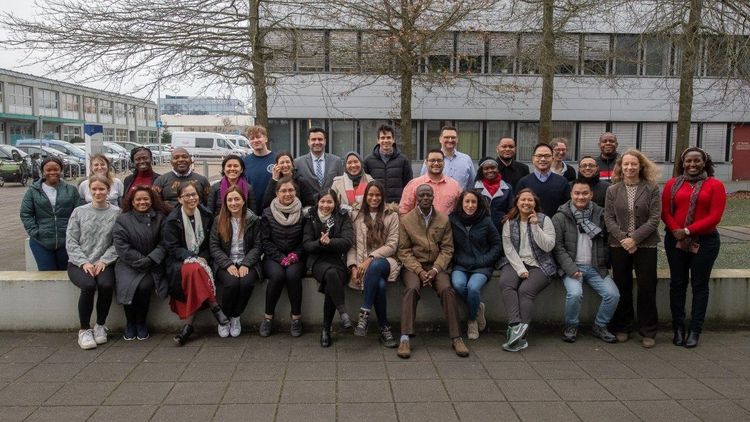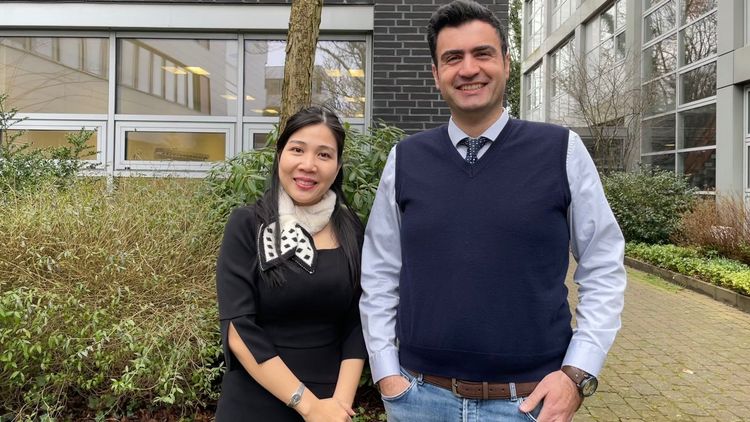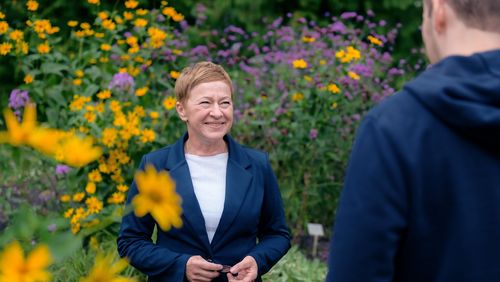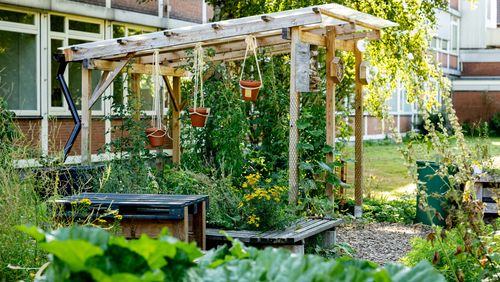Twenty-five young university managers from Asia, the Middle East, Africa and Latin America are currently taking part in the 15th edition of the UNILEAD management training programme. An experience that helps them not just professionally.
"Bad weather? After more than two weeks in Oldenburg we're used to it," Mac Thi Dieu Trang and Pierre Atallah observe with a chuckle. But the two have more in common than a humorous attitude towards the foul weather in northern Germany. They are both members of what they themselves describe as a "big family" – a group of 25 young higher education managers from 15 countries who have been taking part in the University Leadership and Management Training Course (UNILEAD) since the start of the year. During a three-week on-campus phase in February and March, the participants met in person for the first time.
The Center for Lifelong Learning (C3L) at the University of Oldenburg has offered the programme, which is taught in English and funded by the German Academic Exchange Service (DAAD), since 2018. Since then, more than 500 young managerial staff members from over 50 countries have completed the nine-month course, which includes seminars and lectures on topics such as leadership, project management and human resources development.
A large part of the course takes place online, but participants also meet twice on campus in Oldenburg to internalise what they have learned, exchange ideas, and above all work on concrete projects. "We want to support the participants in developing their own projects and designing them in such a way that they can implement them at their universities later on," explains Christine Vajna, programme manager of UNILEAD.
Recognising one's own strengths
Mac Thi Dieu Trang, for example, is a project coordinator in the Section of International
Cooperation and Enterprise Relations at the University of Economics and Law in Ho Chi Minh City, Vietnam. Her university, which is still quite young, wants to operate more independently and initiate the necessary digital transformations in its university management, study programmes and services for students. Dieu Thrang is involved in putting together a roadmap for these plans.
"What I learn at UNILEAD helps me to recognise and use my own strengths effectively," she says. At the same time, she is acquiring the tools and skills to get the right messages across to the right people so that she can establish new connections for her university or win the support of funding bodies outside her country's borders for her project.
Pierre Atallah, registrar at the American University of Science and Technology in Beirut, Lebanon, also wants to learn about getting the right messages across. "Many of the students don't graduate or they drop out," he explains. His goal is to set up a programme that helps students to find their way and stay on track – thus improving their academic success.
Learning from each other
To put this into practice he wants to train his team and, above all, secure resources – both human and financial. In the programme, he is learning different ways to present his proposals to the university administration and convince it to back the project, he explains.
But both Dieu Trang and Atallah emphasise that it is also the exchange with the other participants and the mutual support that help participants to develop a positive vision for the future. They explain that despite the considerable cultural differences and language barriers, the participants quickly became a group, a family, during the three-week campus-based phase in Oldenburg. "A special bond has developed between us," says Atallah. Dieu Trang also describes the time together in Oldenburg as a "wonderful experience". "We learned new things every day – not least from each other," she says.
Dieu Trang and Atallah also gained valuable experiences beyond the group and the course content. Thanks to the efficient organisation, the many helpful people they met and the punctual buses, they have a very positive image of Germany. But despite their enthusiasm for the host country and for Oldenburg, unlike with the weather, they just couldn't get used to the local food.





